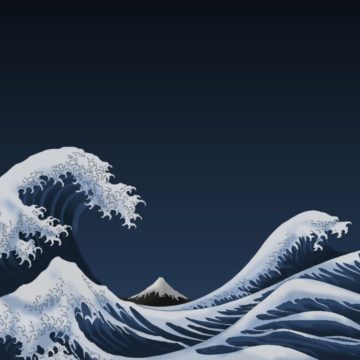Riffing on an exchange between Huike and his disciple Seng-ts’an–the second and third patriarchs of Chinese Zen–Roshi tells us that our own delusional thoughts are like the sin that Seng-ts’an believed was the reason for his suffering. Our thoughts, like Seng-ts’an’s belief in his transgression, are the real cause of our trouble. “You cannot speak ill of yourself and attain the way,” Roshi says. “We take a vow not to speak ill of the three treasures. You’re the three treasures! You are the wonder–if you can wake up.”
Uncategorized
Cease and Desist
Bringing up some practice instructions from Dogen Zenji, Nyogen Roshi tells us that the chatter of the unenlightened mind obscures the wonder of the world as it truly is. “Cease and desist,” Roshi says, quoting Dogen, “and you are like an ocean taking in a hundred rivers.”
Enmei Jukku Kannon Gyo
The Enmei Jukku Kannon Gyo is a dharani, an exhortation designed to produce specific energy though the articulation of sound. The Enmei Jukku Kannon Gyo, or the Ten-Phrase Life Prolonging Kannon, evokes the compassionate and eternal nature of our life. For the words to this chant, see the Hazy Moon Chant Book.
Identity of Relative and Absolute
The Identity of Relative and Absolute is a poem about the enlightened mind written by our Dharma ancestor Shitou (Jap: Sekito Kisen) in the 8th century and chanted in our services. For the words to this chant, see the Hazy Moon Chant Book.
Maha Prajna Paramita Heart Sutra
The most commonly chanted sutra in Mahayana Buddhism, the Heart Sutra expounds the core, or heart, of the Buddha’s teaching. For the words to this chant, see the Hazy Moon Chant Book.

